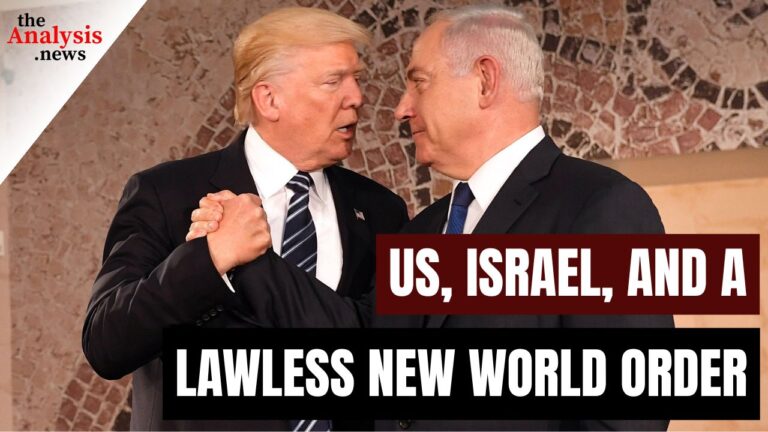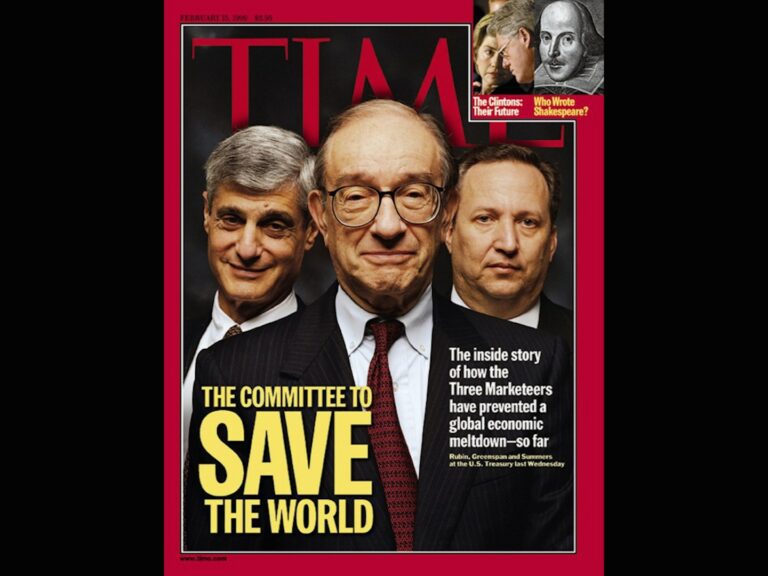Similar Posts

A Desperate Trump Will Do Desperate Things – Larry Wilkerson
Larry Wilkerson and Paul Jay discuss a possible rout of the GOP, and what a desperate Trump might do before the transfer of power. If Biden wins, massive pressure is needed to make him reduce deep income inequality, or a new authoritarian threat will emerge by 2024.

Workers and Communities vs Amazon
A Detroit community demands a new Amazon warehouse meet job and environmental guarantees; Amazon workers in Alabama fighting to unionize. Community activists and union organizers Tonya Myers and Frank Hammer on theAnalysis.news

Does the U.S. Owe Reparations to Afghanistan, Should U.S. Troops Leave? – Bennis & Wilkerson
Bennis and Wilkerson agree on reparations but disagree on whether the U.S. should withdraw all troops. Phyllis Bennis and Larry Wilkerson join Paul Jay on theAnalysis.news

U.S., Israel, and a Lawless New World Order – Nader Hashemi
Israel struck Iran — but could this war set off something far more dangerous?
Middle East scholar Nader Hashemi joins Paul Jay to break down what’s really behind the so-called ’12-Day War.’ Far from a clean victory, Hashemi warns the strikes have likely strengthened Iran’s hardliners, accelerated the push toward nuclear weapons, and crushed the country’s democratic opposition. But this may not be a simple case of Western overreach — it may reflect a deep strategic split between the U.S. and Israel.
As Jay argues, Trump may be seeking to normalize relations with Iran, not to promote democracy, but to pry Tehran away from China and regain leverage in the great power rivalry — especially with most of Iran’s oil flowing to Beijing. Israel, on the other hand, appears willing to risk regional chaos to achieve regime change and eliminate its last major regional adversary.
What’s lost in the Western media narrative is the reality that the Iranian people — not the regime — are paying the price. And what’s collapsing before our eyes is not just diplomacy but the very idea of a rules-based international order.
This war may be just beginning — and its consequences could reshape the global balance of power.

Clinton’s ‘Committee to Save the World’ Unleashes Wall Street – RAI with Rana Foroohar Pt 3/6
On Reality Asserts Itself, Ms. Foroohar says President Bill Clinton’s finance team further deregulated Wall St. including eliminating Glass-Steagall legislation allowing even riskier investments; the Financial Times columnist and author of “Makers and Takers” says this helped create the world’s largest financial institution—Citigroup— headed by Clinton’s former Treasury Secretary Robert Rubin – with host Paul Jay. This is an episode of Reality Asserts Itself, produced May 9, 2018.

Kennedy Was A Cold War Warrior to the Core – Glen Ford on Reality Asserts Itself Pt 5/5
On this episode of Reality Asserts Itself with Paul Jay, Glen Ford says there is no evidence that Kennedy differed from other U.S. presidents in striving for global hegemony. This is an episode of Reality Asserts Itself, produced November 23, 2013, with Paul Jay.

I wonder if this conversation might have benefited from a stepping away from the format of trying to convince the other, to trying to as good as possible describe yourself what the other person’s pov is?
Good argument, Vijay: pout, refuse to vote against Trump, near-guarantee the destruction of any possibility of decent human existence. Congratulate self throughout.
That’s the kind of hard-nosed, realistic political analysis and suggestions for action we need at this point.
The same argument was made about Reagan and Bush. Each time the Democratic party moved further to the right and completely abandoned its working class base. That’s how we ended up with Trump. That’s also how there was a glimmer of light let in with respect to progressive reform of the Democratic party but unfortunately the progressives caved in under the DNC pressure. To allow things to seemingly return to normal should Biden be elected (I don’t think he has a chance in hell once the debates start) will be to marginalise the progressive voices to the sidelines. I think 4 more years of Trump is odds on and probably the only way that real reform will start to happen if/when people take to the streets and the Democratic Party has to take a well overdue long hard look at its self.
If you put lipstick on a pig, it’s still a pig. Obama was more dangerous because he was a charismatic leader and good orator and people became complacent, confusing that persona with good leadership. Trump did at least open up the cracks to shine a light on the system with his election. A huge effort has gone into focusing on Trump to divert people’s eyes from those cracks. Basically saying Trump is a blip and if you vote for Biden all will return to normal. Normal however is the real problem as Vijay pointed out brilliantly in this discussion. The other issue with Biden that is not getting addressed is his obvious cognitive decline. For one, he will get slaughtered if there are presidential debates with Trump but the more pertinent question is will take over from Biden? It certainly won’t be Bernie. The progressive element of the democratic party is weak, they folded like cards and are now towing the party line. I’m with Vijay although I understand Paul’s concerns.
Apologies Paul Jay…. but – as far as I can see – the winner is….. Vijay Prashad. Except that maybe the REAL winner might be lurking in the background: The destruction of the ecosphere.
Paul,
While you are absolutely correct to identify and worry about a potential direct military engagment with Iran, and I know you’ve been talking about this from even before the administration was sworn in, I think there are extraneous factors which should be considered. First, the “mad man theory” game. Don’t buy into the act. Yes, they are insane and belligerent, but not nearly as insane as they attempt to appear. If you follow the patterns, it’s not hard to begin to see through it. Second, while the US has absolutely had their eyes on Iran from day 1, obviously this is the final “pillar” standing, the final impediment to their total domination over this region which was so clearly proven critical for maintaining global hegemony, there is a reason why such a direct military engagment hasn’t happened yet several decades after the Shahs’s regime was deposed. Quite simply the consequences of this conflict are truely global in scale. I think you perhaps under-estimate the Islamic Republic’s actual strategic deterence capacity and the ability to project that deterence. They made a conscious choice to acheive this deterence without the use of nuclear weapons, and frankly it’s a novel model. Their system primarily relies on a comprehensive domestic military industry anchored by it’s missile forces. Iran has quite clearly sent a few smoke signals out in response to the ratcheted up tension. Test launching new missiles from submerged vessels. Launching missiles from Iranian territory into targets in Syria. Recently they launched a new military satellite, which in case one fails to real between the lines suggests ICBM capacity which isn’t a particularly new development. They’ve had those for a while. Even today not many nations are launching satellites. We know they have MIRV capacity as well. They’re also one of the handful of nations on earth with the capacity to produce cruise missiles. I could go on and on. That last alone is a game changer in the balance of power in the Gulf. The attack on Saudi facilities was one such smoke signal. The Strike on the US base was the most intense and direct such incident to date. The fact that those events didn’t lead to greater conflict is a pretty signal that there is no appetite, bluster aside, for such a conflict. The Iranians have, and have had for some time an, advanced and fully domesticated military industry. The cost of an attack on a country with these kind of weapons could literally kick off a series of events culminating in global conflict. So they’ve clearly acheived their goal of strategic deterence and they did it without nuclear weapons. The question is then, just how insane would the admin have to be to stroll into such a serious conflict? Yes, the US could easily launch strikes on Iran and cripple the country in half a day without breaking a sweat. The problem is the Iranian response would set the entire region ablaze. Targets in Saudi and Israel would instantly be inundated under a massive barrage of guided missiles. As far as any potential invasion goes, that’s pretty far fetched and highly unlikely. The geography is highly unsuitable. The cost of an invasion would be unlike anything we’ve seen since Korea. Also key Iranian facilities are extremely highly fortified. Essentially if the US wanted to attack Iran in such a way, they would basically have to use nuclear weapons. That would mean a preemptive nuclear strike. Now I can see why you’re so worried about a false flag event. Otherwise that’s not going to go over well with anyone short of the rapture crowd. In conclusion, the fundamental strategic reality remains unchanged. The US has been and remains primarily focused on regime change through any and all means short of direct military engagement. Sabotage, assassinations, economic warfare, all the dirty tricks you can imagine and then some. But the cost of starting a direct military confrontation with Iran is probably too high for even a mad man. Nothing has fundamentally change on either side, Iran or the US.
Thank you for your work. I hope this was at least slightly helpful. I guess the key takeaway is that such an event is probably not likely, but should it actually happen then things have really and truly gone far off the deep end and humanity better buckle up.